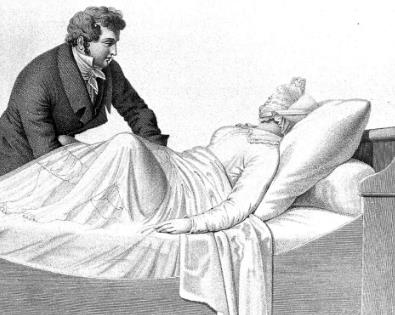Historical Perspectives on Masturbation
Tracing the Evolution of Attitudes Towards Self-Pleasure
The history of masturbation, often euphemized as jerk off, is as complex as it is fascinating, marked by shifts in moral, medical, and cultural attitudes across different eras and civilizations. This exploration provides a lens through which to understand how our current perceptions of masturbation have been shaped by centuries of thought and debate.

Ancient and Classical Views
In ancient civilizations, attitudes towards masturbation were markedly different from many later historical moral standings. The ancient Egyptians, for instance, regarded it within the context of creation, where the god Atum was believed to have created the universe by ejaculating, giving masturbation a kind of divine endorsement. Similarly, in Classical Greece, it was seen as a normal and healthy substitute for sexual intercourse, often depicted in their art and literature. Aristotle’s writings, although not fully endorsing it, acknowledged it as a natural sexual practice.
The Middle Ages and Victorian Misconceptions
The Middle Ages brought significant changes as religious institutions exerted greater influence over sexual behaviors. Masturbation, referred to in texts as "self-pollution," was condemned by the Christian church. This negative stigma intensified during the Victorian era, where it was falsely linked to a myriad of health conditions like epilepsy, insanity, and tuberculosis. A notable 1712 treatise by Dr. Samuel Tissot claimed that semen was an essential oil, and its loss from the body via masturbation could cause weakening of the body and a host of other ailments.
The 20th Century: Medical and Psychological Shifts
It wasn't until the 20th century that perspectives began to shift significantly, thanks to advancements in psychology and medicine. The work of researchers like Sigmund Freud and later, Alfred Kinsey, helped to change perceptions. Kinsey’s reports in the 1940s and 1950s, which suggested that nearly 92% of men and 62% of women masturbated, were pivotal in normalizing masturbation in the public and scientific community. These studies debunked many myths, highlighting masturbation’s prevalence and its role in normal sexual development.
Modern Perspectives and Continued Debates
Today, while much of the Western world views masturbation as a normal and healthy part of sexuality, there remain varied opinions across different cultures and religions. Contemporary medical opinions strongly support the health benefits of masturbation, recognizing it as beneficial for physical and mental health.
Jerk Off: Reflecting on the Past to Understand the Present
In conclusion, the history of masturbation reveals a dynamic and often contentious relationship between society and self-pleasure. Understanding this history is crucial for debunking ongoing myths and fostering a healthier, more informed dialogue about human sexuality. As society progresses, historical insights remind us of the importance of perspective, compassion, and informed understanding in addressing sexual health issues.
